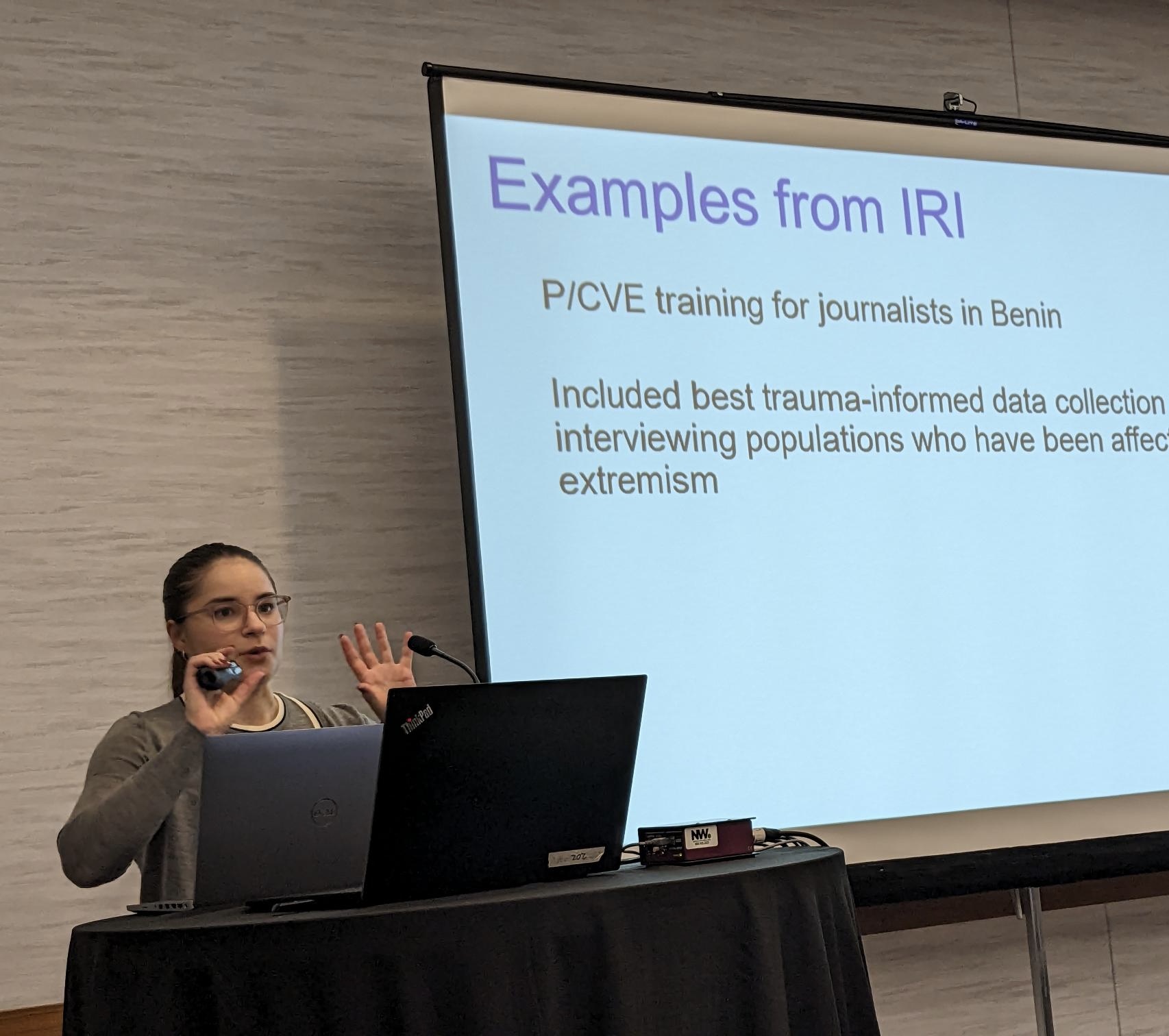Leveraging Trauma-sensitive Data Collection Approaches to ‘Do No Harm’

On October 14, IRI’s Evidence and Learning Practice (ELP) organized a panel on conducting trauma-sensitive evaluations as part of the American Evaluation Association’s (AEA) 2023 annual conference. The annual conference provides a forum for evaluators to discuss trends and priorities within the sector and share best practices for conducting effective and inclusive evaluations. IRI’s portion of the panel provided evaluators from diverse sectors with best practices for ensuring our data collection efforts are trauma-informed, in order to prioritize safety and avoid doing inadvertent harm to those we are engaging throughout data collection efforts.
Recognizing the restrictive and dynamic political environments in which we operate, IRI and peer organizations in the Democracy, Human Rights, and Governance (DRG) sector must be prepared to contend with issues of trauma – for instance, among political dissidents, marginalized segments of a population such as LGBTQI+ individuals, refugees and internally displaced persons, and survivors of conflict and/or sexual violence, as well as others. IRI’s Evidence and Learning Practice has thus recently finalized guidance to ensure that we engage with these issues in an intentional, sensitive manner as we collect data to assess the effectiveness of our programming or determine the focus of future programming. The conference provided a valuable format to socialize this guidance and reflect on the value of adopting a trauma-sensitive approach to evaluation to keep participants and evaluators safe.
To ensure data collection efforts are trauma-informed, data collectors should:
- Complete a trauma risk assessment to weigh the potential risks and benefits to participants and facilitators before planning for a data collection exercise and develop a safety plan to respond to trauma if it does arise, whether on the part of the interviewee or the facilitator.
- If the risks outweigh the benefits in terms of engaging with trauma-affected populations, consider collecting data from other relevant actors, such as service providers currently working with the population of interest.
- Solicit informed consent from interviewees in an ongoing manner – in particular checking in with someone if they seem to be quiet or upset – and use content warnings before discussing upsetting topics.
- Use inclusive, contextually-appropriate language when interviewing or surveying individuals, to build their comfort level and trust. Echo language interviewees are using to describe their experiences of trauma, instead of characterizing their experience in your own terms: if they describe themselves as a ‘survivor,’ do not call them a victim, for example.
- Leave sufficient time for icebreakers, breaks, and a debrief following the interview, especially if sensitive topics will be discussed, rather than scheduling back-to-back interviews. This will help data collectors build trust and rapport with participants.
- Identify what a trauma response looks like and be prepared to recognize and respond to it both in interviewees and in ourselves as data collectors. We cannot effectively engage with trauma-affected populations without identifying our own triggers and taking care of ourselves.
- Connect individuals who have experienced trauma to relevant support groups and services to support them in processing difficult subjects that may have arisen during the course of a data collection exercise.
Using these practices, IRI is acting on its commitment to ‘do no harm’ – a core principle of IRI’s political inclusion approach. While IRI’s efforts to infuse trauma-sensitivity into its data collection practices are nascent, IRI’s Conflict Prevention and Stabilization and Nigeria teams have already incorporated best
practices into their trainings for journalists and research assistants, respectively, who will interview conflict-affected populations. The discussion at this year’s AEA conference contributed to a growing conversation about the need for trauma-informed evaluation. Organizing a discussion on this topic at the annual conference provided an important forum to build broader awareness around the importance of being trauma-sensitive while collecting data and marks an important step towards mainstreaming trauma sensitivity across our work.
Top